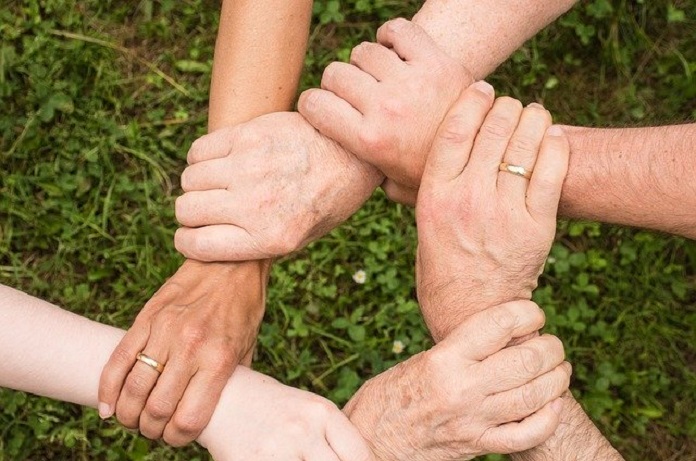A new study from Harvard University took a closer look at whether doing regular volunteer work has health and well-being benefits for older adults.
It is well-known that volunteer work is of enormous benefit to society. Apart from the many recent examples seen around the world during the COVID-19 crisis, estimates in the United States in 2017, reported that around 77 million US adults spent 6.9 billion hours working with volunteer organizations, generating US$167 billion in economic value for their communities.
In addition to helping others, volunteering may also have health and well-being benefits for the volunteers themselves. Previous studies have linked volunteering to a reduced risk of physical decline and improved psychological health. However, some of these studies have conflicting results and so far there is insufficient evidence to show a consistent effect of volunteering on health. In a recent large study in older adults, researchers from Harvard University looked in detail at the effects of volunteering on a wide range of health and well-being outcomes. They reported their findings in the American Journal of Preventative Medicine.
Previous studies on health benefits of volunteering had inconsistent results
The study included almost 13,000 participants randomly selected from the Health and Retirement Study (HRS), a large prospective study of US adults over 50 years old. The analysis was based on data collected for the HRS, face-to-face interviews and survey responses. Participants were asked about how much time they spent in volunteering activities and 34 physical health and psychological/social well-being outcomes. Their volunteering activity and health were tracked in two groups over four years from 2010 to 2016. This allowed the researchers to compare the possible effect of changes in volunteering activity on the various outcomes.
Participants who volunteered at least 100 hours/year (about 2 hours per week) had a substantially reduced risk of mortality and developing physical limitations, higher levels of subsequent physical activity, and an improved sense of well-being, compared to individuals who did no volunteering. There was no link between volunteering and improvements to chronic conditions such as diabetes, hypertension, stroke, cancer, heart disease, lung disease, arthritis, obesity, cognitive impairment, or chronic pain.
Helping helps helpers
“Our results show that volunteerism among older adults doesn’t just strengthen communities, but enriches our own lives,” commented lead investigator Dr. Eric Kim, from the Harvard T.H. Chan School of Public Health, Boston. “Regular altruistic activity reduces our risk of death even though our study didn’t show any direct impact on a wide array of chronic conditions,” he explained.
It is not yet clear what biological mechanisms lead to the health benefits of volunteering and this is an area for future research. In the meantime, the study authors recommend that physicians and policy-makers encourage more volunteering amongst older adults – whilst keeping in mind current COVID-19 pandemic public health guidelines. “Now, might be a particular moment in history when society needs your service the most. If you are able to do so while abiding by health guidelines, you not only can help to heal and repair the world, but you can help yourself as well,“ added Dr. Kim.
Written by Julie McShane, MA MB BS
References:
1. Kim ES, Whillans AV, Lee MT, et al. Volunteering and subsequent health and well-being in older adults: an outcome-wide longitudinal approach. Am J Preventative Medicine Published online June 11, 2020. Doi: https://doi.org/10.1016/j.amepre.2020.03.004
2. Elsevier, Press release 11 June 2020. “Doing good does you good” https://www.eurekalert.org/pub_releases/2020-06/e-dgd060820.php
Image by Anemone123 from Pixabay



